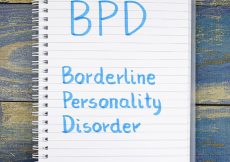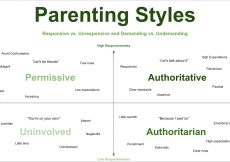Raising kids is one of the most intensely personal and profoundly impactful responsibilities in life. For some of us, the decision to take an unconventional approach — whether through homeschooling, living in a rural area, or embracing a life of travel — is driven by a desire to create a unique and enriching experience for our children. Yet, despite our best intentions, these choices often stir strong reactions in others, sometimes leading to criticism or even social distancing. But why does choosing a different educational path or lifestyle for our children provoke such intense responses? Let’s look at the sociocultural and psychological reasons behind these reactions and explore the experiences of other parents who’ve ventured down this road.
1. The Sociocultural Lens: Challenging the Norm
In most societies, conventional schooling and a more settled, structured lifestyle are seen as the “norm.” When parents deviate from this, it can be seen as a challenge to the accepted path, questioning the values or efficacy of the conventional approach. Many feel that traditional schooling and a stable routine are the best or “only” way to prepare kids for adulthood, making alternative paths seem unusual or even risky.
Some families, for example, choose to live a nomadic lifestyle, educating their kids on the road as they travel the world. Families like the Johnsons, who document their journey online, talk about the profound educational benefits their kids gain from real-world experiences, such as learning new languages, discovering history firsthand, and gaining a sense of adaptability. Yet, they often face judgment from others who view their choice as an avoidance of structure and responsibility. This tension is rooted in the belief that children should be raised within a fixed community, attending a traditional school to develop a sense of “normalcy” that’s widely accepted in society.
Here’s a personal example that illustrates the fear and rejection people often feel toward unconventional educational choices. When I was 19, after a year in the Art Faculty that didn’t captivate me (I was mostly bored and couldn’t find any real interest in digging up ancient artifacts on archaeological sites), I decided to redirect my studies toward advertising. I visited various schools, some of which were expensive, while others seemed to be “money-making machines.” So, I asked my parents to let me enroll in a correspondence course with the country’s official educational body, CNED. This allowed me to study advertising and earn my degree while working from Maltese or Greek beaches, traveling, and learning to manage my time as I wished.
What I considered an incredible opportunity was criticized by my family; years later, my stepmother said that studying remotely probably meant I was “a very unstable person”! Ironically, she hadn’t pursued any studies herself, neither on-site nor remotely! For some people, distance learning is still heavily frowned upon, even though top universities like Harvard offer such options! But I wasn’t deterred. Later, I continued this approach with my Theology degree and psychology studies and even took a U.S.-based course in autism, all through remote learning. Believe me, many of those who criticize this method have much lower levels of education. It’s stepping out of the mold that really sets them off!
2. Psychological Factors: Threat to Identity and Beliefs
When parents choose a nontraditional route, it can inadvertently cause others to question their own decisions. This sense of internal comparison often happens unconsciously, where others feel that alternative approaches might cast doubt on the way they’re raising their own children. This discomfort can lead people to criticize or even distance themselves, as a way to reassure themselves that their own path is the “right” one.
Let me give you another example. Years ago, I decided to shed the 10 kilos that weighed me down on my hips and thighs. I was fully aware that I didn’t need just another diet but a complete and immediate overhaul of my eating habits. So, I began to categorize foods into those that would “stick” to my body, like bread, pasta, pizza, and meat, and those that would “disappear quickly,” like leafy greens, tomatoes, or honeydew melon. In just eight months, I reached my goal and haven’t regained a single gram. Yet, many friends got upset with me, insisting I was “nicer” before I lost the weight. The truth is, my success forced them to look in the mirror and confront their own choices!
This is exactly what happens when you decide to take a different path with your children or give them an unconventional education.
For instance, Lucy Martin, a mother of three who homeschools her children and lives on a self-sustaining farm, shared how she’s often heard remarks suggesting that her children will struggle to “fit in” without a conventional school experience. But for Lucy, the benefits far outweigh the challenges; her kids have a strong sense of independence, hands-on learning, and an appreciation for nature. Critics, she notes, seem to question her approach as a way to bolster their confidence in the traditional model, perhaps because her alternative approach subtly suggests there may be other valid (or even better) ways to raise children.
3. The Fear of the Unknown
When we don’t fully understand something, it’s natural to feel uneasy about it. For many, homeschooling, a nomadic lifestyle, or remote living can seem foreign and unfamiliar, creating an emotional distance between themselves and those who choose these paths. Traditional schooling, neighborhood life, and a settled routine are what most people know; anything different may provoke feelings of discomfort simply due to a lack of familiarity.
Families like the Langleys, who moved to a remote village to homeschool their children, found that many friends and relatives couldn’t understand their choice, worried that their kids would miss out on a “real” education. The Langleys, however, explain that their rural life allows their kids to engage with a rich, hands-on curriculum: gardening, animal care, and plenty of outdoor exploration. Though others may view this as limiting, the Langleys see it as an unparalleled way to foster curiosity and responsibility in their children. This divide between perception and reality is common when we confront paths we’re unfamiliar with, leading to misunderstandings and, sometimes, judgment.
4. The Role of Envy and Idealization
Beyond misunderstanding, there’s another reason unconventional parenting choices might spark criticism: envy. Parents who pursue nontraditional lifestyles for their families often prioritize flexibility, freedom, and adventure, values that appeal to many. However, pursuing these values often requires a radical life change that isn’t accessible or desirable for everyone. Some parents may admire the flexibility that homeschooling or world travel offers but feel constrained by their own work, finances, or social commitments, leading to a sense of envy that can sometimes translate into criticism.
The Taylors, a family who decided to take a “world-schooling” approach by living in different countries for extended periods, say they frequently get comments from parents who “wish they could do the same.” Many admire the enriching education and unique life experiences the Taylor kids are getting but feel frustrated that it isn’t feasible for their own families, which can lead to bitterness or even passive-aggressive criticism. This subtle envy often goes unacknowledged but is a common underlying factor behind why others may react so strongly.
5. Benefits of Raising Kids Differently: Real-Life Examples
While unconventional choices come with their share of criticism, the benefits for families who embrace them can be profound. Here are a few examples of parents who found success in raising their children differently:
- The Phillips Family: After choosing to homeschool their children, they noticed increased engagement and deeper learning. Their kids are now able to pursue subjects that interest them at their own pace, from advanced science projects to creative arts, which may not have been accessible in a traditional school setting.
- The Browns: By moving to a rural homestead, they say their kids have developed resilience, practical skills, and a connection with nature. Their children take part in the daily routines of the farm, such as caring for animals and managing crops, which has instilled a strong sense of responsibility.
- The Changs: A family of digital nomads, the Changs educate their children as they travel to different countries. Their children have become bilingual, have friends across the world, and understand history and culture from a firsthand perspective. They say their kids’ social adaptability and curiosity have flourished.
Final Thoughts: Embracing Differences with Compassion
While raising kids differently often leads to criticism, it’s important to remember that every parent wants the best for their child. For those of us who choose a different path, maintaining confidence in our decisions while extending empathy to those who may not understand is essential. In a world of diverse parenting approaches, embracing differences can lead to a more compassionate and inclusive environment for both parents and children. Let’s celebrate our choices and respect others, knowing that there are many ways to raise healthy, happy, and well-rounded children.


































